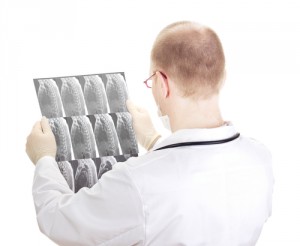NICE Releases New Guidance on Multiple Sclerosis Care
Written by |

 The British National Institute for Health and Care Excellence (NICE) updated their guidelines on the provision of health care for multiple sclerosis (MS) patients in the United Kingdom, which number approximately 100,000 people. The institute recommends now that every patient who is suspected to suffer from the disabling neurological disease receive a consultation from a neurologist, and not only an MRI to perform the diagnosis.
The British National Institute for Health and Care Excellence (NICE) updated their guidelines on the provision of health care for multiple sclerosis (MS) patients in the United Kingdom, which number approximately 100,000 people. The institute recommends now that every patient who is suspected to suffer from the disabling neurological disease receive a consultation from a neurologist, and not only an MRI to perform the diagnosis.
The update to the first guideline, which was established in 2003, states that the opinion of a consultant neurologist is also needed to make an MS diagnosis, as well as the results of MRI. Patients suffering from the disease have the right to have their care plan reviewed at least once a year, as well as a multidisciplinary team responsible for their health care, including MS nurses, GPs, psychologists and therapists.
“It’s a paradigm shifting guideline which reshapes much of our advice on MS and its management. It’s a full update and it lays out a new framework for the diagnosis and management of people suspected of having MS,” explained the director of clinical practice at NICE, Mark Baker.
The guidelines define, on the other hand, that the use of the cannabinoid drug Sativex or fampridine is not recommended, since its benefits are small compared to the costs it requires from NHS. While Sativex costs £50,000 per quality-adjusted life year (QALY), and fampridine £160,000 per QALY, NICE’s threshold is only £30,000 per QALY.
NICE also emphasizes the importance of offering patients an adequate single point of contact not only to discuss their care, concerns and therapeutic options, but also to encourage them to engage in supervised exercise programs, which have recently received more attention from experts as a way of enhancing mobility and fighting fatigue.
[adrotate group=”4″]
“The care someone receives should not depend on where they live. One of the central areas that we have tried to address in the guidance is identifying and recognizing inequalities in services and in care throughout the NHS,” said the Consultant Neurologist at the Greater Manchester Neuroscience Centre, who chaired the NICE guideline group, Paul Cooper.
Even though multiple sclerosis is one of the most common neurological diseases affecting young adults in the UK, there are still patients being diagnosed in an ad-hoc way or misdiagnosed, which is why NICE updated the guidance. There are still patients who go more than a year without the NHS taking action on their condition and medication. In addition, the health care provision is not equal to all patients, according to an audit conducted by the Royal College of Physicians and the MS Trust in 2011.
“In the past some people got access to prompt and appropriate treatment but many did not. Many people with MS were diagnosed perhaps in a rather ad-hoc way without access to specialist advice, or information and support at the time of diagnosis. Many were potentially being misdiagnosed. The other area that we have tried to address is improving access to therapies of proven benefit for this disabling and distressing condition,” Cooper added.





